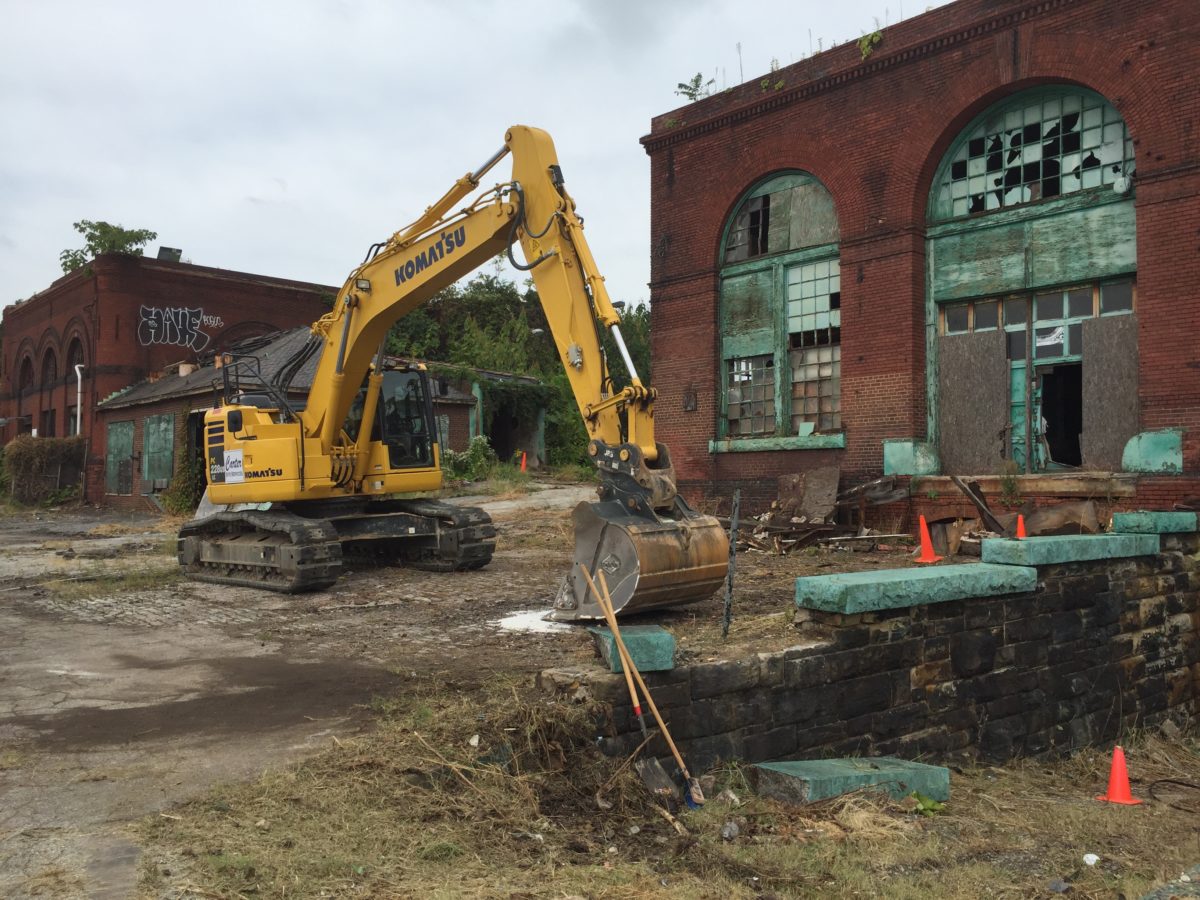Just before an Amtrak train rode by the corner of East Oliver and North Wolfe in the Broadway East neighborhood on Tuesday, Mayor Stephanie Rawlings-Blake was talking about how the area is a “front door” to train commuters heading into the city.
She was standing in a former city-owned lot, surrounded by four dilapidated buildings that have stopped performing civic functions. Yet, there was talk of new life.
“This is a critical component to making that entryway vibrant and vital,” Rawlings-Blake said.
As the heavy equipment looming behind her suggested, the mayor was speaking of what’s to come on the lot. Dignitaries were gathered to break ground on the Baltimore Food Hub, a $23.5 million project that’s set to revitalize the existing 3.5-acre lot to include flexible manufacturing and office space for food businesses, food truck parking, a market and hoop houses for urban farming.

A rendering of the Baltimore Food Hub. (Image courtesy of American Communities Trust)
City Seeds, the culinary training program of workforce development org Humanim, is signed on to run a commercial kitchen out of a fifth 15,000-square-foot building. That building will be new construction, and could open next summer.
Humanim’s School of Food, which helps food entrepreneurs, is also set to be housed at the Food Hub.
The project has been in the works for about three years, and the land was sold by the city for $500,000 in late 2014. Initial talks pegged the project at $10 million. Construction overseen by American Communities Trust began in mid-September. Since it used to be a pumping station, environmental remediation was required at the former brownfield site. City, state and local government provided support, as well as the Historic East Baltimore Community Action Coalition, Johns Hopkins University and the Annie E. Casey Foundation.

One of the future Food Hub buildings. (Photo by Stephen Babcock)
As with tech and manufacturing, food is seen as a sector that creates jobs in place. Along with providing residents access to healthy food in what is now a food desert, officials touted the Baltimore Food Hub as a job creator.
“This is a project that will empower the individuals in this community without displacing them,” said Jay Williams, U.S. Assistant Secretary of Commerce for Economic Development.
It’s not the only big redevelopment project planned in the area. Nearby, construction will soon being on the Hoen Lithograph Building on East Biddle Street, which Cross Street Partners is redeveloping.
Join the conversation!
Find news, events, jobs and people who share your interests on Technical.ly's open community Slack

Baltimore daily roundup: An HBCU innovation champion's journey; Sen. Sanders visits Morgan State; Humane Ai review debate

Baltimore daily roundup: Medtech made in Baltimore; Sen. Sanders visits Morgan State; Humane Ai review debate

Baltimore daily roundup: The city's new esports lab; a conference in Wilmington; GBC reports $4B of economic activity


